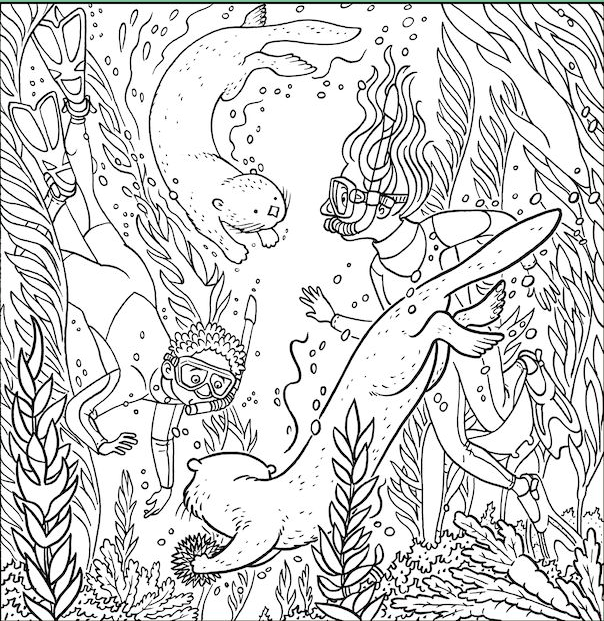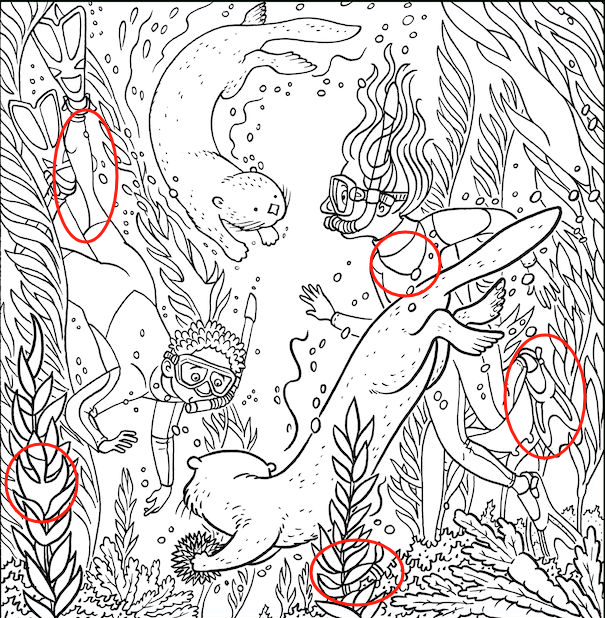Dive into Delight: Snorkeling with Playful Sea Otters
The Unforgettable Joy of Snorkeling with Sea Otters
Have you ever dreamt of slipping beneath the waves and meeting one of the ocean’s most charming ambassadors? Imagine adjusting your mask, taking a deep breath, and gliding through swaying kelp forests—only to lock eyes with a curious sea otter pair. These furry acrobats twist, flip, and squirt bubbles with playful enthusiasm, turning an ordinary snorkel into an extraordinary encounter. In this guide, we’ll show you how to prepare for a sea otter snorkeling adventure, what to expect underwater, and why these delightful mammals deserve our love and protection.

Why Sea Otter Encounters Are a Snorkeler’s Dream
Diving with sea otters offers a unique blend of wildlife watching and personal connection:
- Playful Personalities: Unlike more skittish marine creatures, sea otters often approach snorkelers, eager to investigate new “toys”—that’s you!
- Dynamic Demonstrations: Watch them crack open shellfish on their chests, juggle pebbles, and slide headfirst through kelp strands. It’s nature’s own underwater circus.
- Kelp Forest Ballet: As they float belly-up, otters wrap themselves in kelp “blankets,” creating a hypnotic dance amid lush fronds.
- Educational Insight: Otters serve as a “keystone species,” meaning their presence indicates a healthy marine ecosystem, rich in biodiversity.
Ready to chase bubbles with the ocean’s fluffiest residents? Let’s dive deeper into planning your trip.
Choosing the Perfect Otter Snorkeling Spot
Not all shores offer the chance to meet these buoyant mammals. Consider these top locations:
- Monterey Bay, California: Home to thriving kelp forests and resident otter populations—easy boat or kayak access.
- Kenai Fjords, Alaska: Cold –water adventurers can spot sea otters alongside orcas and humpback whales in glacial fjords.
- Vancouver Island, British Columbia: The sheltered inlets and mild currents create ideal snorkeling conditions for otter interactions.
- Kamchatka Peninsula, Russia: For the intrepid traveler, remote rocky coasts host rich otter communities and dramatic volcanic backdrops.
Check local dive shops and eco-tours for guided snorkeling trips that prioritize animal welfare and responsible tourism.

Essential Gear for a Safe and Comfortable Snorkel
Before you dip a fin, equip yourself properly:
- Wetsuit or Drysuit: Water temperatures range from chilly to brisk—choose insulation that keeps you agile yet warm.
- Mask and Snorkel Fit: A snug-fitting mask prevents leaks; a purge valve snorkel lets you clear water easily after bubbly otter greetings.
- Fins with Good Maneuverability: Shorter, flexible blades help you weave through kelp without damaging fragile fronds.
- Underwater Camera or GoPro: Capture those otter antics—but use a floating leash to avoid losing your precious footage.
- Safety Whistle and Dive Knife: In tangled kelp or unexpected currents, these simple tools can make all the difference.
With the right kit, you’ll feel confident exploring otter territory and ready to focus on the magic unfolding before you.

Underwater Etiquette: Respecting Sea Otters and Their Habitat
Sea otters may seem friendly, but they deserve our utmost care:
- Keep Your Distance: Stay at least 10 feet away to avoid stressing the animals and disrupting their natural behaviors.
- Move Slowly and Calmly: Sudden movements or loud noises can frighten otters away—glide gently and speak in hushed tones above water.
- Avoid Touching or Feeding: Human interaction can harm otter health and alter their foraging habits; let them remain wild.
- Protect the Kelp Forest: Don’t grab or break algae; these underwater forests provide crucial shelter and food for countless species.
- Follow Local Regulations: Many parks and reserves enforce strict wildlife-interaction guidelines—respect closures and seasonal exclusions.
By observing these simple rules, you ensure otters remain wild and future snorkelers enjoy the same joyful encounters.
What to Expect During Your Otter Snorkel Adventure
From first plunge to final wave, here’s the typical flow:
- Briefing and Boat Ride: Your guide reviews safety protocols, wildlife regulations, and otter behaviors to watch for.
- Entry into the Kelp Bed: Slipping masks on, you descend into an emerald realm where sunlight dapples through waving fronds.
- First Otter Sighting: A smooth head first emerges, whiskers twitching—your pulse quickens as a fluffy face peers quizzically.
- Playful Interactions: Otters may dive around you, roll onto their backs, or perform somersaults—bubbling laughter is optional but encouraged!
- Rest and Reflection: After 30–45 minutes, return to the boat for hot beverages and to compare highlight reels with fellow snorkelers.
Expect exhilaration, awe, and a deeper bond with the ocean’s wonders by day’s end.

Beyond the Snorkel: Supporting Otter Conservation
Your adventure can fuel positive change:
- Donate to Reputable Organizations: Groups like the Sea Otter Savvy program and the Monterey Bay Aquarium fund research and rescue efforts.
- Adopt an Otter: Symbolic adoptions help fund rehabilitation of injured juveniles rescued from oil spills or abandoned dens.
- Spread the Word: Share your photos and stories on social media, emphasizing responsible tourism and conservation messaging.
- Reduce Plastic Waste: Otters are vulnerable to entanglement—pledge to skip single-use plastics and participate in coastal cleanups.
- Volunteer Locally: Check for beach-cleanup drives or marine-wildlife monitoring projects in your area to stay engaged year-round.
When snorkelers become advocates, the playful otters we cherish gain stronger protections and brighter futures.

Conclusion: Swim Among Friends and Preserve Their World
Snorkeling with sea otters isn’t just another bucket-list item—it’s a chance to witness nature’s playful spectacle and forge a lasting bond with marine life. By choosing ethical tours, equipping yourself thoughtfully, and honoring underwater etiquette, you ensure each encounter is safe and unforgettable. Then, by supporting conservation efforts, you give back to the very ecosystem that welcomed you with open—sometimes webbed—arms. So pack your fins, perfect your diving roll, and prepare for the bubbly joy of swimming alongside these charismatic coastal companions. After all, when worlds collide beneath the waves, new friendships—and deeper commitments to our planet—are born.





